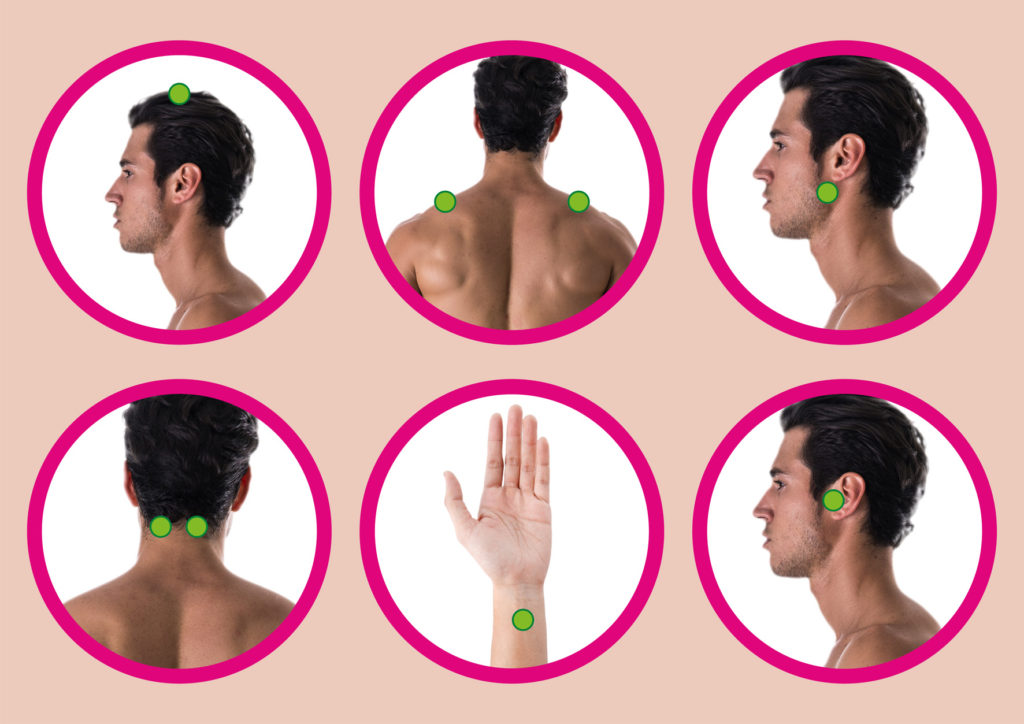If you suffer from vertigo and dizziness you’ll know all too well how the condition can impact your everyday life.
Simple movements are unusually intense for people with vertigo, they may feel like they’re moving or spinning when they’re not.
Or they may feel like their surroundings are in motion when they’re not.
 It’s a terrible sensation often accompanied by nausea, vomiting, loss of balance or headaches.
It’s a terrible sensation often accompanied by nausea, vomiting, loss of balance or headaches.
((N.B.) If you have recently started taking a new medication and it co-incides with a bout of vertigo or dizziness please inform your GP.
Drugs like anti-depressants, sedatives, pain-killers and muscle relaxants, may cause dizziness and escalate the chances of a vertigo attack.)
Here are the 5 things we recommend to try to help reduce the severity or even stop the symptoms of vertigo and dizziness.
1. Hydration
Drink at least half of your body weight in fluid ounces of water a day.
For example, if you weigh 200 pounds (14 stone) you should drink 100 fluid ounces (3 litres) of water a day.
If you’re working out, hiking, or outdoors a great deal, you’re going to need to add to those 100 ounces.
It’s useful to find a bottle with measurements on it, if its 25 fluid ounces you’ll know you must drink 4 of those a day.
If you don’t drink a lot of water at the moment, it’s best to increase your water consumption to 1 cup extra a day until you build up to the full amount.
Please note this is only for water. If you drink tea and coffee you will need to add that much more water to your day.
Avoid consuming liquids that have high sugar content such as concentrated juice and fizzy drinks.
(Please note, you should consult your GP if you have kidney or fluid retention issues before making this change.)
2. Antioxidants
Eat anti-inflammatory, antioxidant-rich foods to make a powerful impact on vertigo and dizziness.
Antioxidant-rich foods include berries and nonstarchy vegetables along with anti-inflammatory omega-3 fatty-acid-rich foods including wild-caught seafood, flaxseed and chia seeds.
3. Acupressure
Applying pressure on different parts of the body can help stimulate the body to rebalance itself so that it’s not as sensitive.
If you’re suffering from vertigo and dizziness, try these acupressure points for relief.
In a rested position either sitting or lying down. Take your index and middle finger and place on the points shown above and rub in a circular direction.
Do this for 30 seconds and take a break before moving on to the next point.
Remember to incorporate deep breathing when massaging each point. (See box breathing technique below)
Studies show stress and vertigo go hand in hand and often feed off each other.
When you’re stressed out, you’re more likely to experience an episode of vertigo, and worrying about vertigo, in turn, increases stress and anxiety.
You can learn to manage those emotions with calming practices like meditation, deep breathing, or yoga.
Box breathing, also referred to as square breathing, is a deep breathing technique that can help you slow down your breathing.
It works by distracting your mind as you count to four, calming your nervous system, and decreasing stress in your body.
It’s a simple yet powerful technique
Step 1: Breathe in counting to four slowly. Feel the air enter your lungs.
Step 2: Hold your breath for 4 seconds. Try to avoid inhaling or exhaling for 4 seconds.
Step 3: Slowly exhale through your mouth for 4 seconds.
Step 4: Repeat steps 1 to 3 until you feel re-centered.
5. Correct Your Spinal and Posture Alignment
In addition to keeping the body in optimal health and working order, consistent chiropractic care can also address central nervous system issues by removing spinal misalignments that disrupt nerve communication.
Such spinal misalignments may also be the root cause of inner ear issues and vertigo.
There are incredible benefits of chiropractic care that not only improve balance and coordination but increase overall health and wellness to keep you feeling your best.
Contact us on 021 487 8465 or fill out the contact form to request a free posture analysis to determine if an upper cervical spine misalignment could be the cause of your vertigo.
If you think this article can help someone you know please share it with them, thank you.

















One Response
thank